Marketing in today's digital landscape is like trying to navigate a maze. With multiple channels in play—social media, email, websites, and more—marketers often find themselves overwhelmed by the sheer volume of data. How do you know which channel is truly driving conversions? This is where cross-channel marketing attribution software comes into play. These tools are designed to illuminate the murky waters of multi-channel marketing by accurately tracking customer interactions across all touchpoints. By using these tools, marketers can gain actionable insights that lead to better decision-making and improved ROI.
However, many marketers struggle with the complexities of measuring the effectiveness of their campaigns. According to a survey by HubSpot, 63% of marketers find it challenging to measure the effectiveness of their multi-channel marketing efforts. Traditional metrics often fall short, leaving marketers in the dark about which strategies are truly working. By the end of this article, you'll know exactly how to leverage cross-channel marketing attribution software to enhance your marketing efforts.
Let's dive into the top cross-channel marketing attribution tools that can help you maximize your marketing effectiveness and gain a clearer understanding of your customer journeys.
Best for: Comprehensive attribution insights for SaaS companies.
Cometly is a leading cross-channel marketing attribution solution that empowers marketers to take control of their data.

Overview & Background: Cometly provides real-time optimization capabilities through AI technology, ensuring that every customer touchpoint is captured and analyzed. It's particularly well-suited for SaaS companies looking to understand their customer journeys in depth. For more on how to measure cross channel marketing attribution, check out this detailed guide.
Key Features:
1. Multi-Touch Attribution: This feature allows marketers to see how different channels contribute to conversions, rather than relying on single-touch methods.
2. Customer Journey Tracking: Cometly offers detailed insights into the entire customer experience, enabling businesses to optimize each touchpoint.
3. Actionable Analytics: Users receive actionable recommendations based on real-time data, helping them make informed marketing decisions.
4. Integration Capabilities: Cometly integrates seamlessly with popular marketing platforms, allowing for a unified data view.
5. Custom Reporting: Marketers can generate customized reports that focus on specific metrics relevant to their campaigns.
Pricing & Value Proposition: Cometly offers competitive pricing tiers tailored to the needs of various businesses, making it an excellent investment for those looking to enhance their marketing analytics.
Best for: Businesses seeking a robust analytics platform.
Google Analytics 360 is a comprehensive analytics tool that provides deep insights into user behavior.
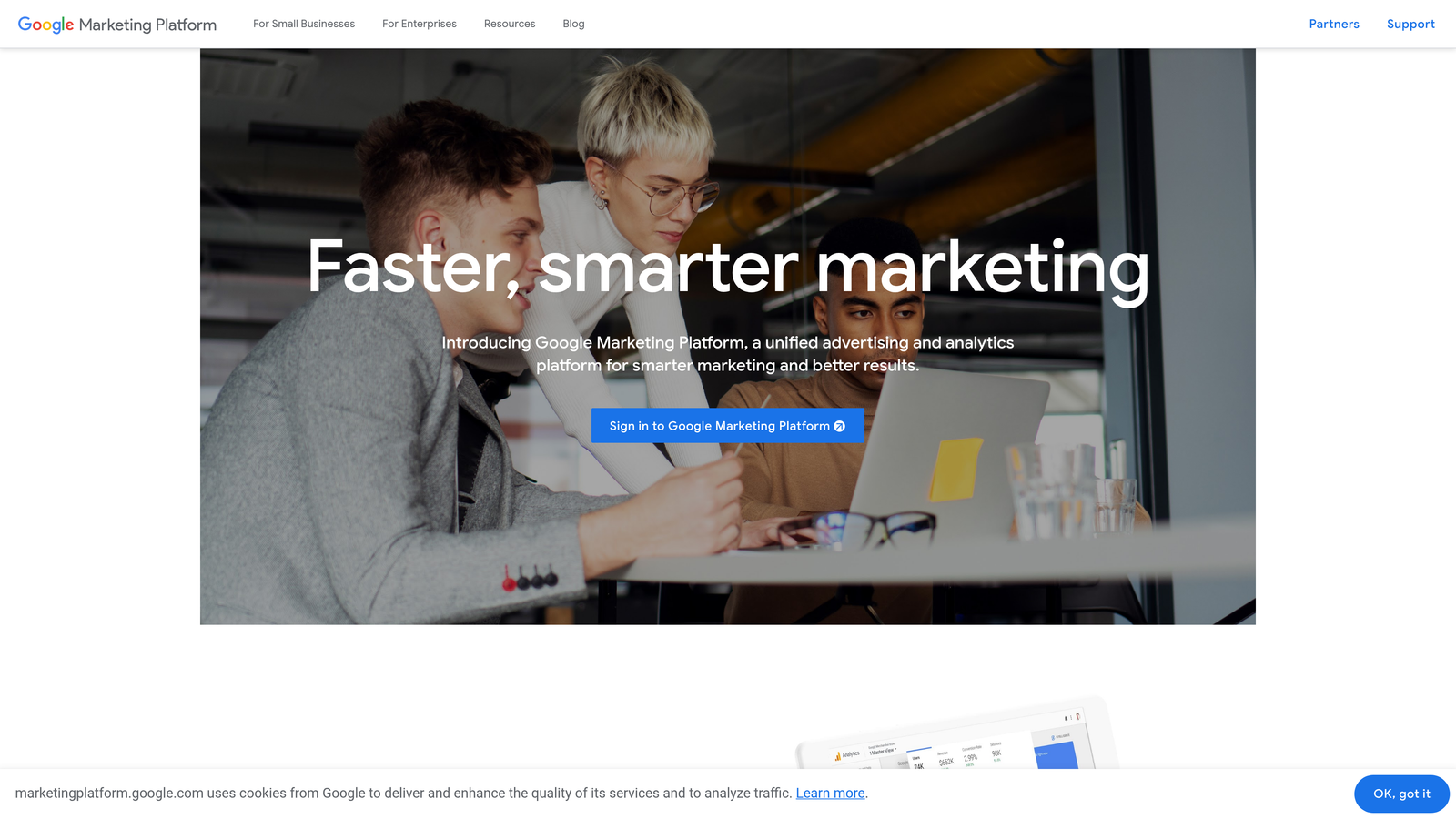
Overview & Background: As part of Google’s marketing platform, Google Analytics 360 offers powerful features that integrate well with other Google products, including Google Ads. For those interested in understanding different types of digital marketing attribution software, this platform is a great starting point.
Key Features:
1. Advanced Segmentation: Users can segment their audience based on various criteria for detailed insights.
2. Custom Reporting: The platform allows for extensive customization in reporting to suit specific business needs.
3. Multi-Channel Funnel Analysis: This feature enables marketers to see how different channels work together to drive conversions.
Pricing & Value Proposition: Google Analytics 360 is geared towards mid to large-sized businesses with a robust marketing budget, offering a wealth of features that justify its cost.
Best for: Inbound marketing and sales alignment.
HubSpot provides a suite of marketing tools, including strong attribution capabilities that align well with inbound marketing strategies.
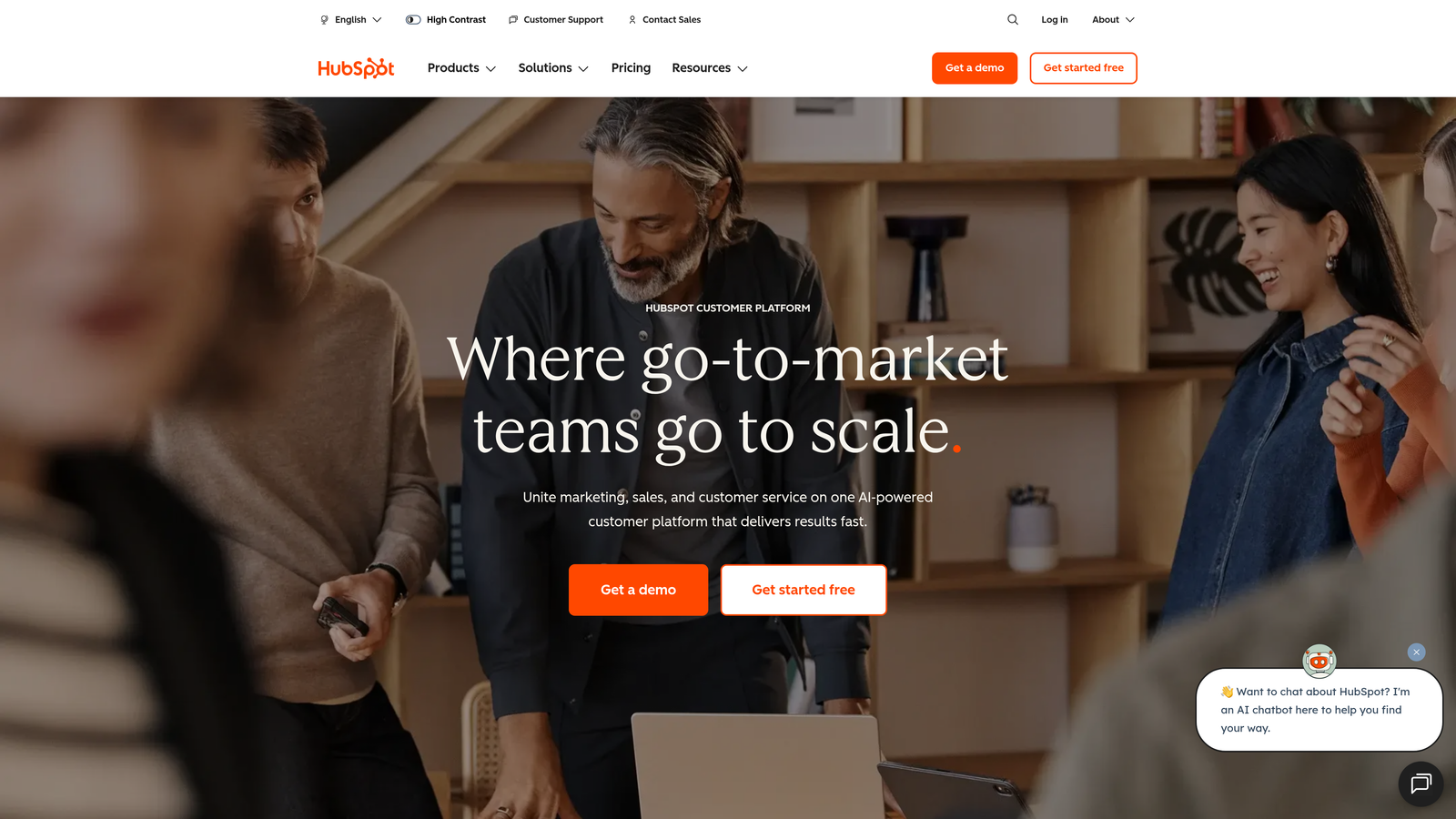
Overview & Background: HubSpot is known for its user-friendly interface and seamless integration with its CRM, making it an ideal choice for companies focused on inbound marketing.
Key Features:
1. Lead Tracking: HubSpot allows users to track leads throughout their journey, providing insights into behavior and engagement.
2. Campaign Performance Analysis: Users can evaluate the performance of their marketing campaigns in real-time. For insights on shopify marketing attribution software, HubSpot can provide valuable data.
3. Attribution Reporting: HubSpot provides detailed attribution reports that help marketers understand which channels are driving conversions.
Pricing & Value Proposition: HubSpot offers tiered pricing that caters to businesses of all sizes, making it a flexible option for various marketing needs.
Best for: Dedicated attribution-focused insights.
Attribution focuses specifically on providing marketers with insights into their customer journeys.
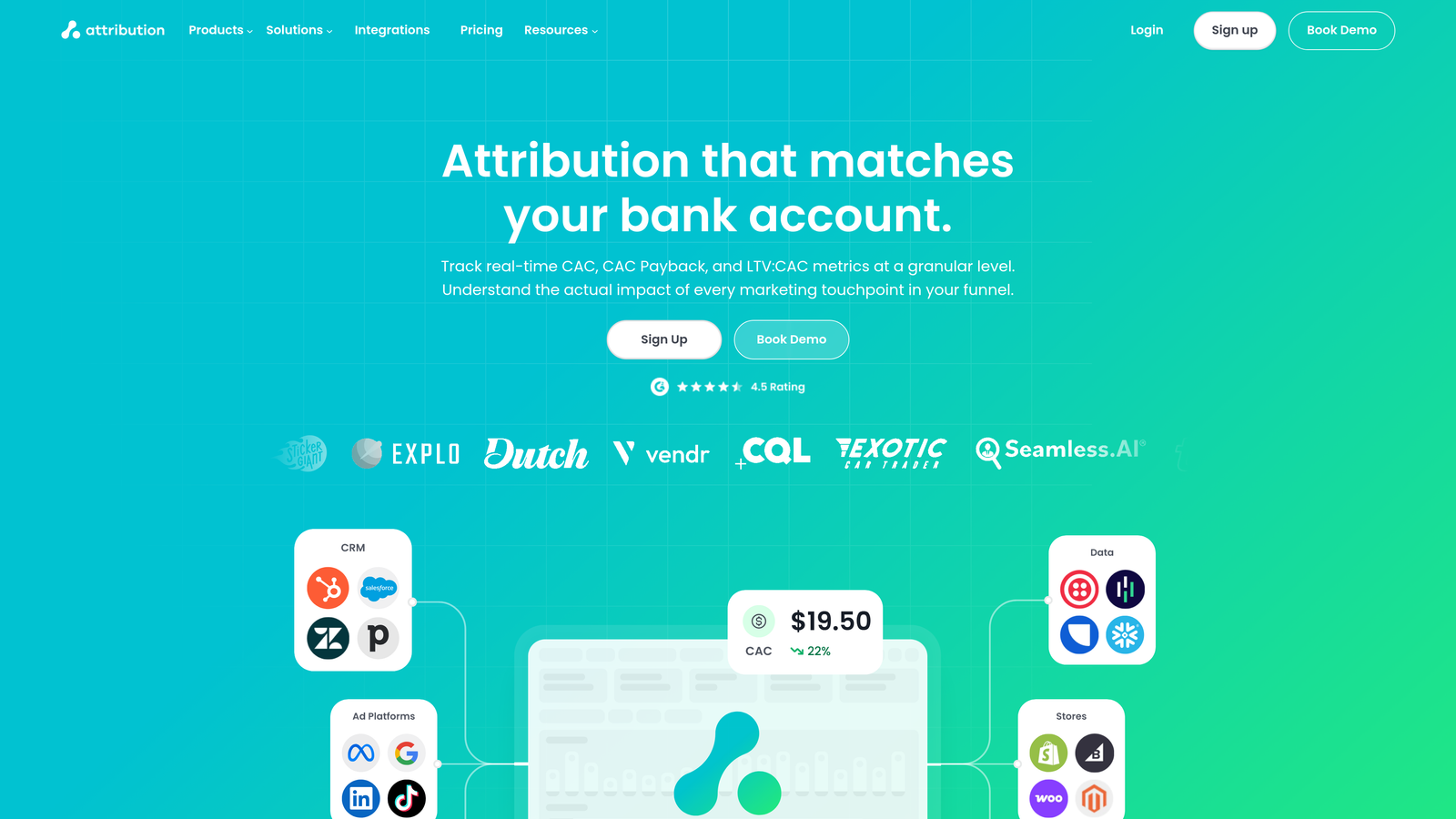
Overview & Background: This tool is designed for marketing teams looking for specialized analytics to improve their attribution strategies. If you want to explore more about marketing attribution software companies, this tool is worth considering.
Key Features:
1. Predictive Analytics: Attribution uses advanced modeling to predict future customer behaviors based on past actions.
2. Customizable Reports: Users can create reports tailored to their specific needs, focusing on key metrics.
Pricing & Value Proposition: Attribution provides competitive pricing options for businesses looking for specialized insights, making it a valuable addition to any marketing arsenal.
Best for: Retargeting and cross-channel marketing.
AdRoll is a marketing platform that specializes in retargeting and cross-channel marketing strategies.
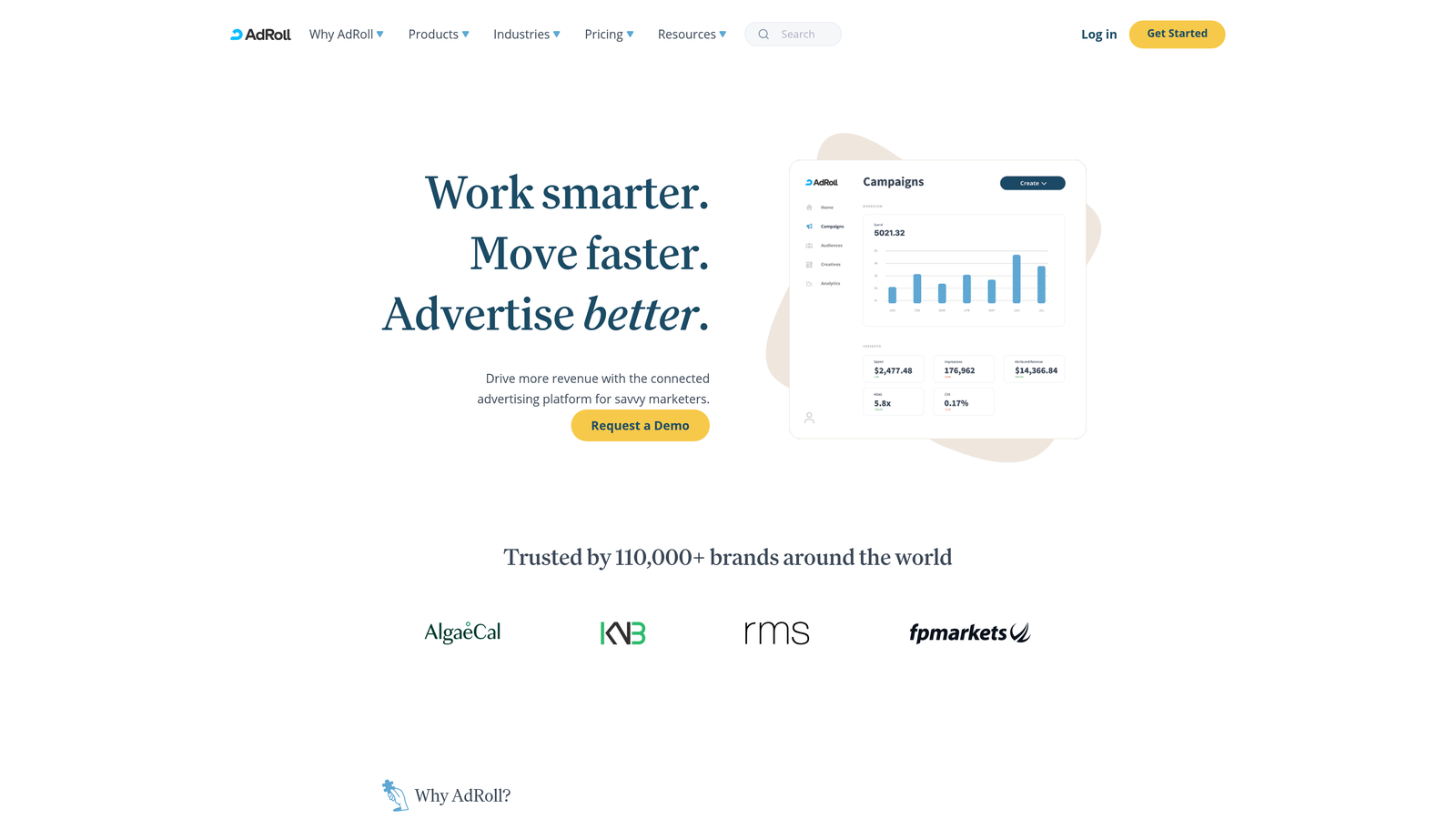
Overview & Background: AdRoll allows businesses to retarget ads across various platforms, effectively increasing brand visibility and engagement.
Key Features:
1. Ad Placements: Users can place ads across multiple channels, including social media and display networks.
2. Customer Insights: AdRoll provides insights into customer behavior, allowing for more targeted marketing efforts.
Pricing & Value Proposition: AdRoll offers flexible pricing models based on ad spend, making it suitable for businesses looking to enhance their retargeting efforts.
Best for: Data collection and integration.
Segment focuses on aggregating customer data from various sources, providing a unified view of customer interactions.
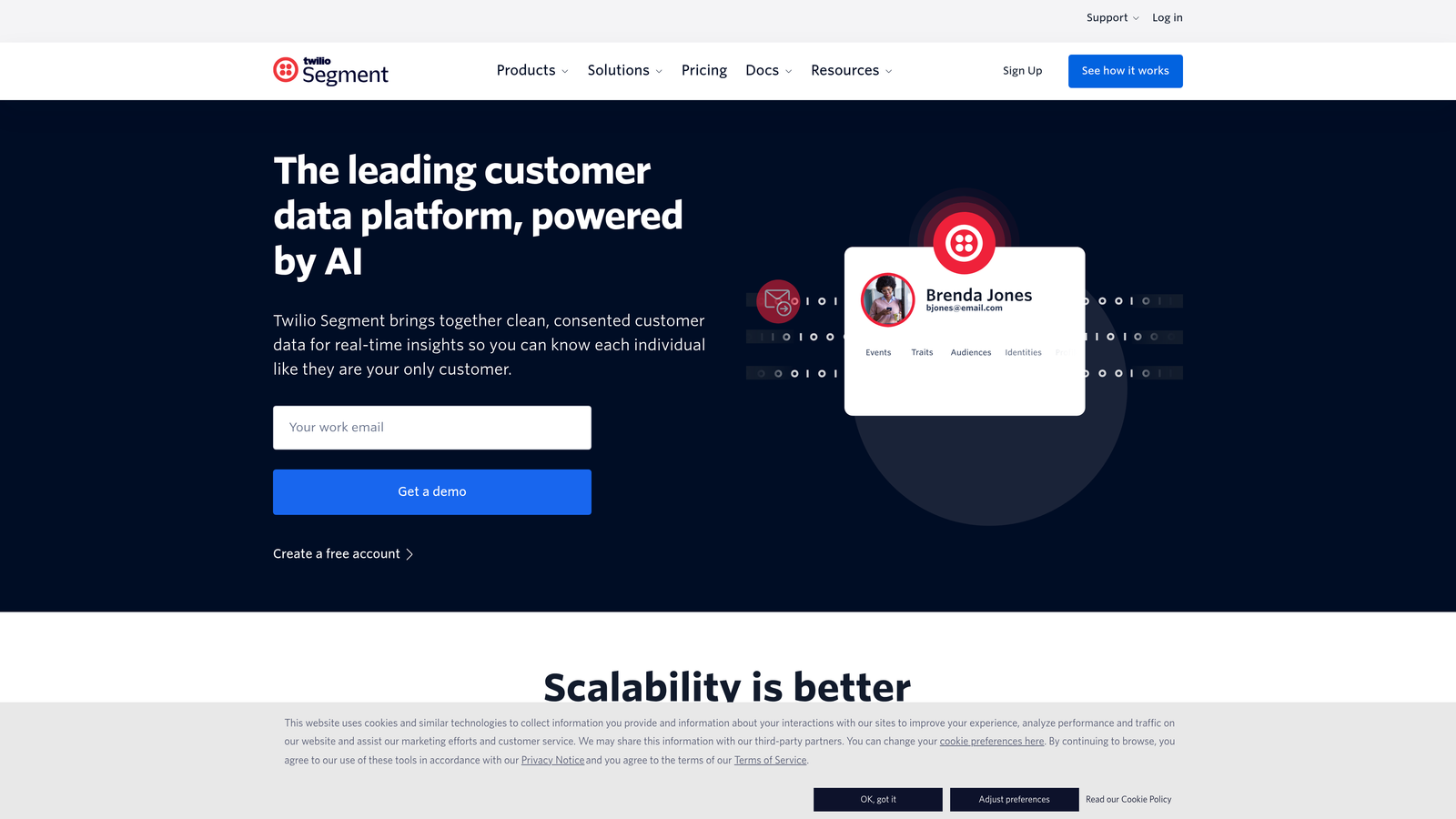
Overview & Background: Segment is ideal for companies looking to streamline their data collection processes and improve their marketing analytics. For insights on multi-touchpoint marketing attribution, this tool is particularly useful.
Key Features:
1. Data Unification: Segment aggregates data from different platforms, providing a comprehensive view of customer interactions.
2. Integration Capabilities: Users can easily integrate Segment with various marketing tools to enhance their analytics.
Pricing & Value Proposition: Segment offers various pricing tiers, allowing businesses to choose a plan that meets their specific data needs.
Best for: Product analytics and user engagement.
Mixpanel excels in providing detailed product analytics to enhance user engagement strategies.
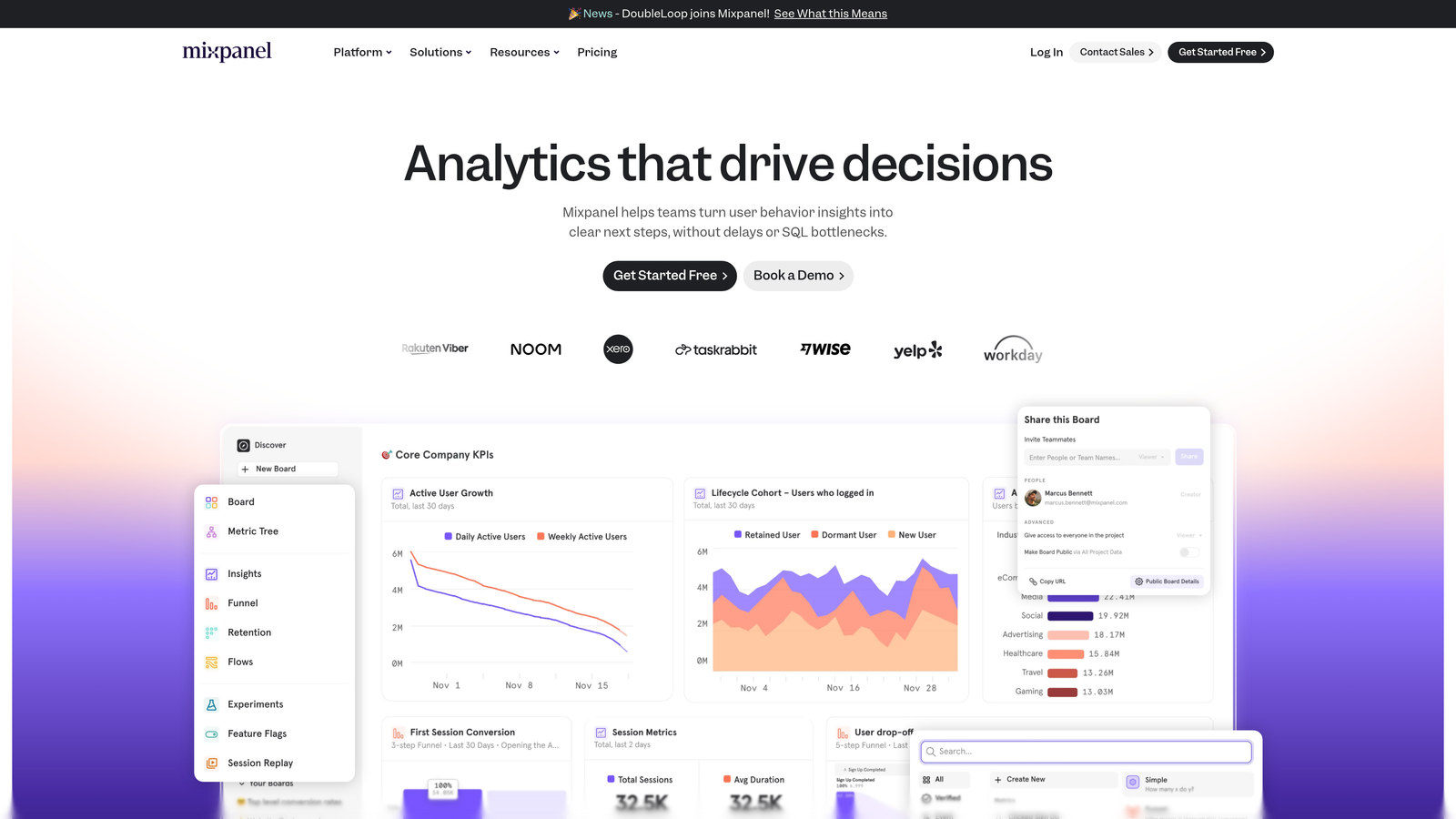
Overview & Background: Mixpanel is particularly useful for product teams focused on understanding user behavior and enhancing engagement through data-driven decisions. If you're also interested in direct marketing attribution, Mixpanel provides relevant insights.
Key Features:
1. Cohort Analysis: Users can analyze specific groups of customers over time to identify trends.
2. Funnel Tracking: Mixpanel allows businesses to track the customer journey through their sales funnel.
Pricing & Value Proposition: Mixpanel offers flexible pricing tailored to user engagement needs, making it an essential tool for product teams.
Choosing the right cross-channel marketing attribution software can significantly impact your marketing effectiveness. With an array of options available, it’s essential to align the features of each tool with your specific business needs. Consider factors like budget, required features, and integration capabilities when selecting a tool.
Businesses that take the time to evaluate their needs and the capabilities of attribution tools often see a marked improvement in their marketing strategies and ROI. For those interested in adopting a data-driven marketing strategy, our guide can provide further context about marketing analytics software to help enhance your approach.
Understanding and implementing the right attribution software is critical for marketing success. By utilizing tools that accurately track customer interactions across various channels, you can achieve improved ROI and marketing effectiveness. Assess your needs and start exploring the available tools today. Ready to transform your marketing strategy? Get your free demo and see how Cometly can elevate your marketing efforts.
Learn how Cometly can help you pinpoint channels driving revenue.
.svg)
Network with the top performance marketers in the industry